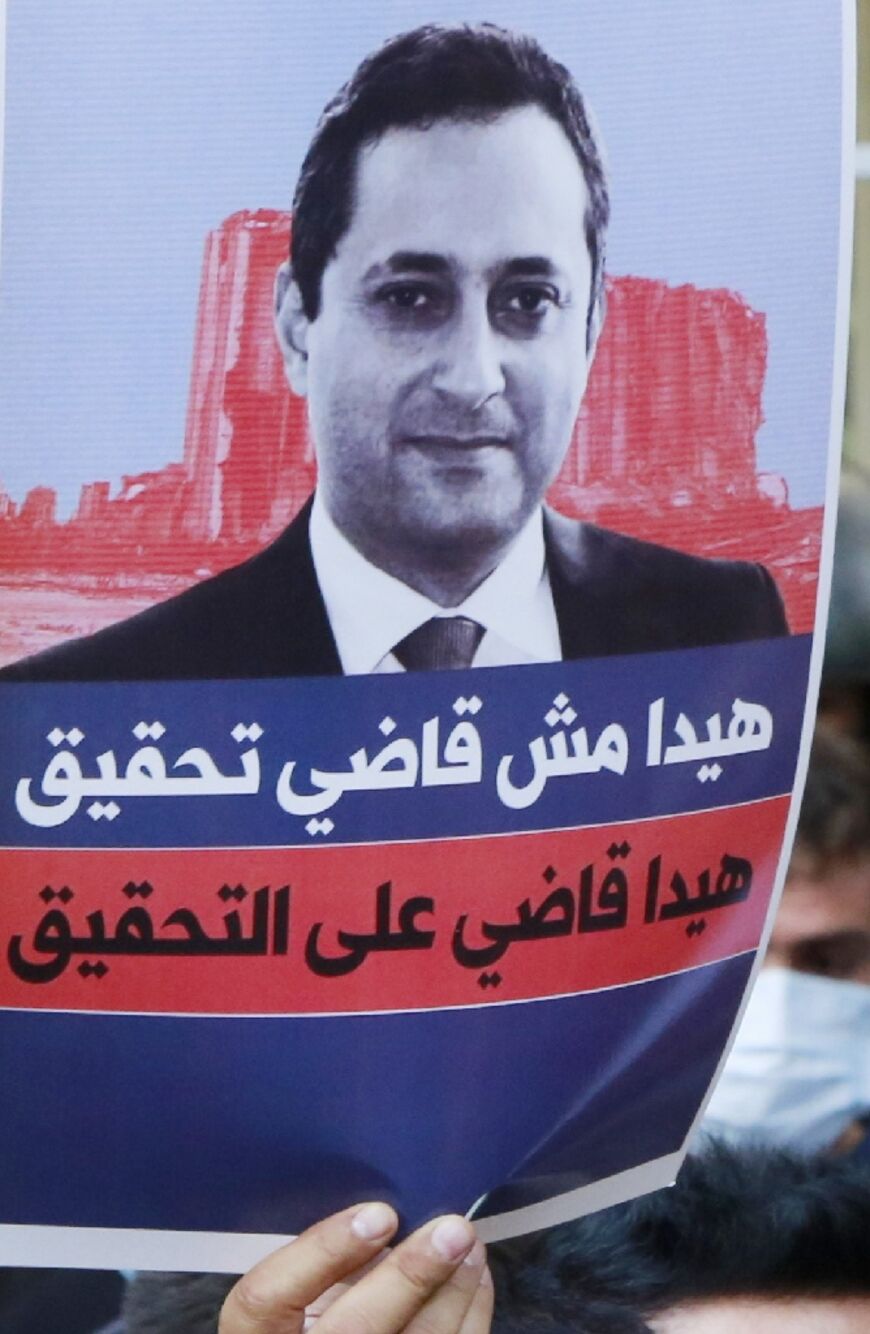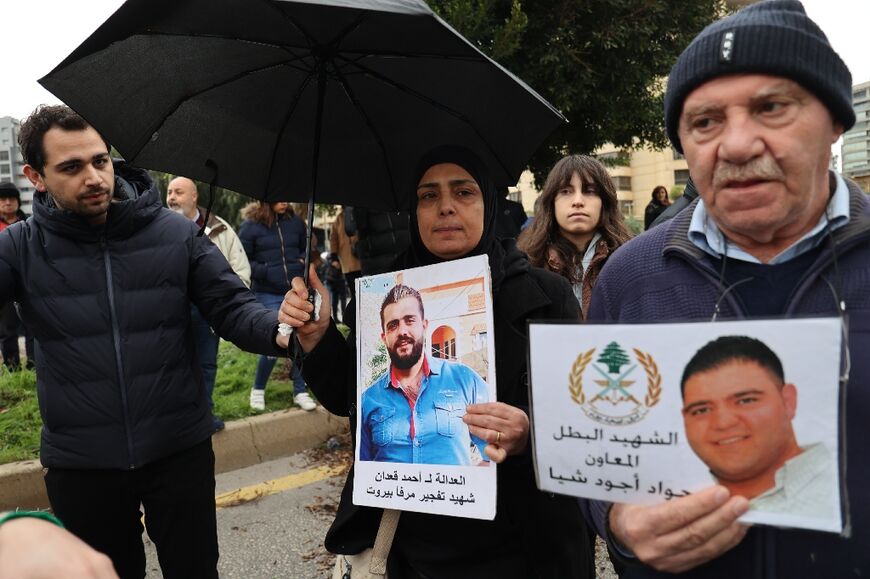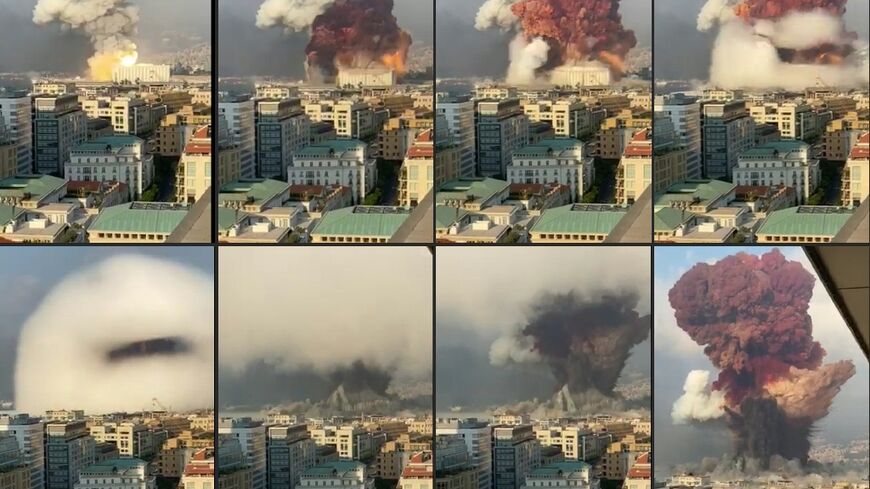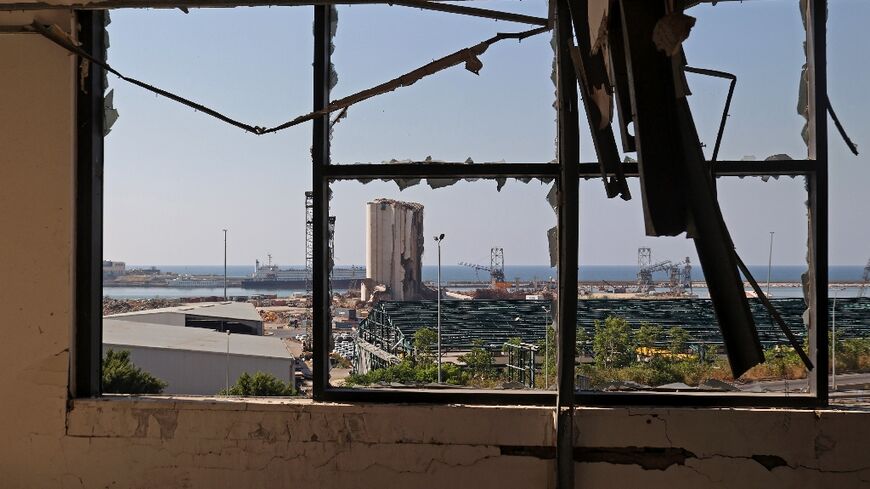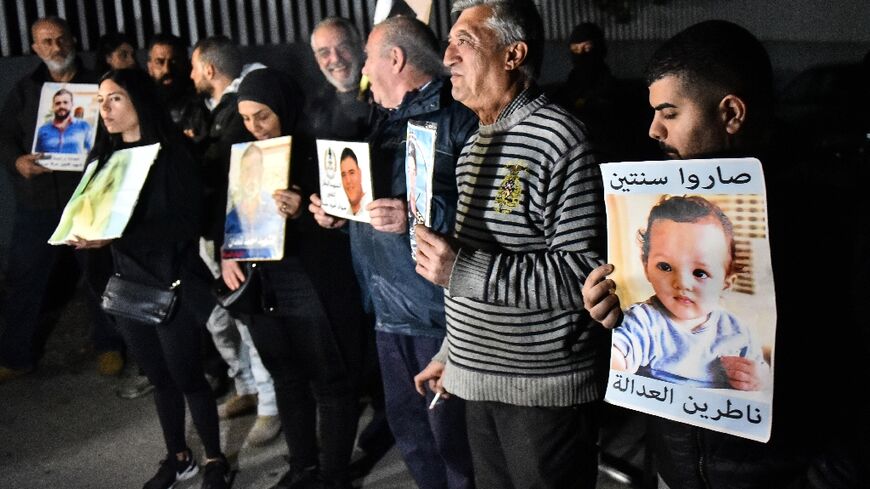Beirut blast probe resumes after 13 months: judicial source
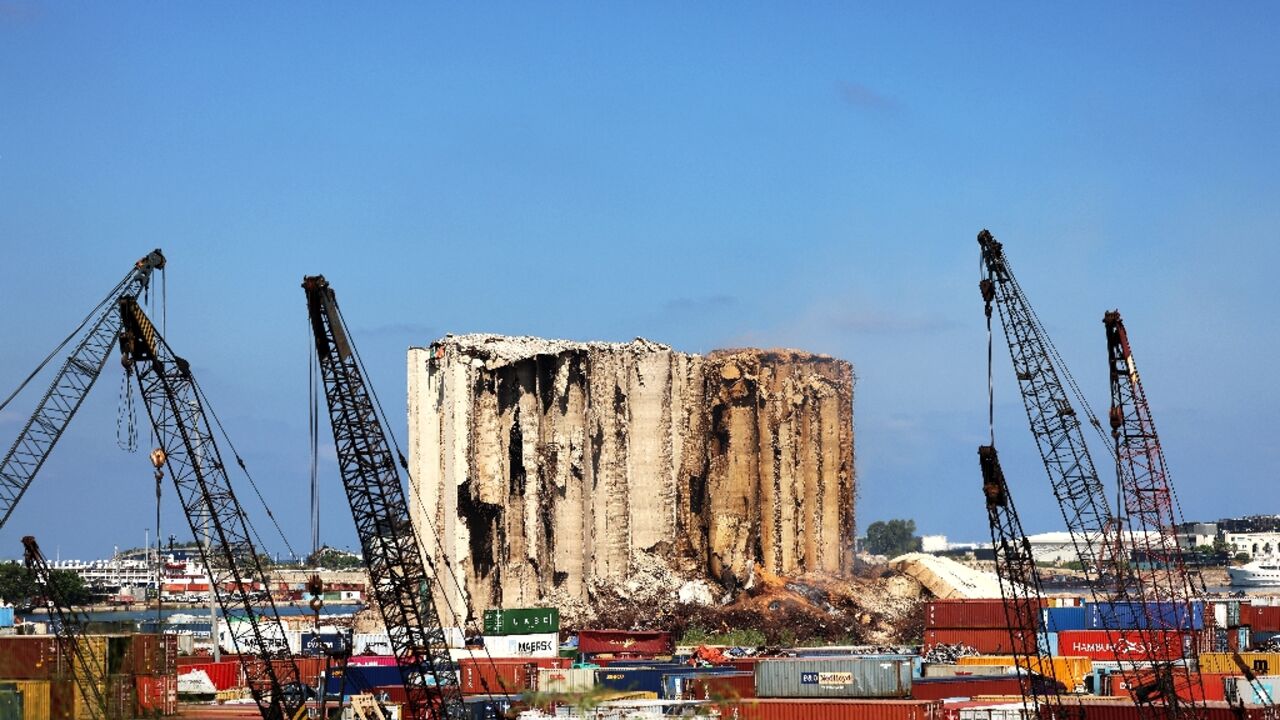
The Lebanese judge investigating the deadly 2020 Beirut port blast has resumed his work, a judicial official said Monday, after a 13-month suspension due to political pressure.
The probe into the cause of the August 4, 2020 blast, one of history's largest non-nuclear explosions, had been stalled since December 2021 as a series of complaints against the judge obstructed his work.
No state official has yet been held accountable over the explosion, which killed more than 215 people and destroyed swathes of the capital.
Authorities said hundreds of tonnes of ammonium nitrate fertiliser haphazardly stocked in a port warehouse since 2014 had caught fire, causing the explosion.
"Judge Tarek Bitar has decided to resume his investigation," the official told AFP.
The official said that Bitar had ordered the release of five of 17 detained suspects, and pressed charges against eight other people, setting dates for their questioning.
Among those charged were Abbas Ibrahim, General Security director general, State Security agency chief Tony Saliba, and other security officials, politicians and judges.
Bitar had previously sought permission to question both Ibrahim and Saliba.
Lebanon's former head of customs, Shafiq Merhi, was one of those released.
Despite the surprise decision, Bitar continues to face immense pressure, which lawyer and activist Nizar Saghieh said there was "no doubt" would persist "to halt his work".
"Bitar is waging a battle against the policy of impunity", Saghieh told AFP.
Bitar was forced to suspend his probe after a barrage of lawsuits, mainly from politicians he had summoned on charges of negligence.
They include several ex-ministers, two of whom were hit with arrest warrants after they failed to show up for questioning.
"Bitar conducted a legal study that led him to decide to resume his investigations despite the complaints filed against him," the official said.
- 'Ruled by a mafia' -
Lebanon's powerful Shiite group Hezbollah had repeatedly demanded he step down on the grounds of political bias.
Hussein el-Khalil, the political advisor of Hezbollah chief Hassan Nasrallah, told reporters Monday that Bitar's investigation was a "black stain" on Lebanese justice.
The Iran-backed group and its ally Amal called for demonstrations to demand his dismissal in October 2021, with seven people dying in gun battles during the rally.
Foreign countries and international bodies have called for the probe to resume.
Bitar met last week with two French judges to discuss the investigation, a judicial source told AFP at the time, adding he did not share any information with them.
France had launched its own probe into the blast, which killed two of its citizens and wounded 93.
In Lebanon, state institutions have been reluctant to cooperate with the domestic probe, which began the same month as the explosion.
In February 2021, Bitar's predecessor as lead judge was removed from the case after he had charged high-level politicians.
Parliament has refused to lift immunity granted to lawmakers, and Bitar's requests to interrogate top security officials have been turned down.
The interior ministry has also failed to execute arrest warrants issued by Bitar, further undermining his quest for accountability.
The victims' families have been holding monthly vigils for more than two years, seeking justice and accountability.
"It was time for judge Bitar to resume his work," said Tatiana Hasrouty, whose father died in the blast.
"We are ruled by a mafia, and all those charged by Bitar are part of that mafia," she told AFP, saying she expects more hurdles in questioning officials.
Some in Lebanon have also voiced support for an international probe into the tragedy.
In a joint letter sent to the United Nations Human Rights Council in 2021, rights groups and relatives of blast victims had said "flagrant political interference, immunity for high-level political officials, and lack of respect for fair trial" have rendered the probe incapable of delivering justice.
